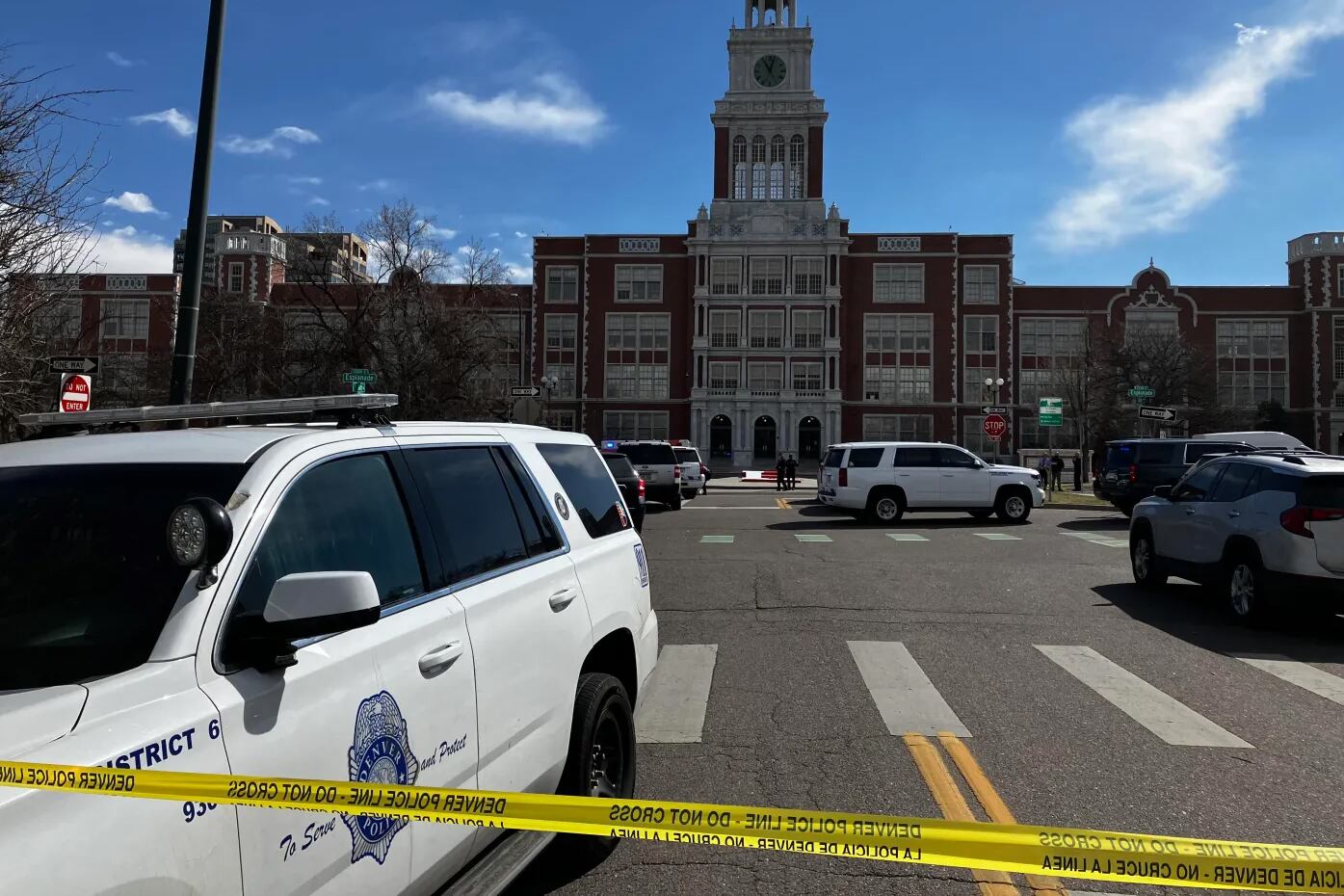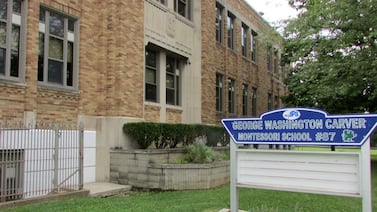As the Denver school board prepares to discuss its policy banning police from schools, some students, educators, and advocacy groups are pushing back on a proposal to roll back the ban.
“There is no such thing as a good person with a gun, the same way there is no such thing as a good cop with a badge,” Veneno Quezada-Montoya, a sophomore at Denver’s North High School, told school board members at a public comment session Monday.
“Because behind that badge is centuries and centuries of oppression.”
On Thursday the board is set to discuss — and possibly revise — a policy that says the superintendent shall “not staff district schools with school resource officers or the consistent presence of security armed with guns or any other law enforcement personnel.”
The board adopted the policy, known officially as executive limitation 10.10, in 2021 after voting in 2020 to remove police known as school resource officers from schools.
The board temporarily suspended that policy in late March after a shooting inside East High School, which has sparked public outcry and a debate about Denver’s discipline policies.
Thirteen high school campuses have had police officers for the past month and a half. Those campuses will continue to have officers, known as SROs, until the last day of school on June 2.
Superintendent Alex Marrero has proposed that for next school year and beyond, each school would be able to decide whether or not to have a police officer on campus. But Marrero’s proposal would require the school board to reverse its ban.
Movimiento Poder, an advocacy group that campaigned for decades against police in schools, is pushing Denver Public Schools to keep the ban. In a report released Wednesday, Movimiento Poder, which was formerly called Padres & Jóvenes Unidos, called the ban “the most significant advance in racial equity within the city’s education system in decades.”
“The elimination of SROs has already been clearly and hugely beneficial to thousands of students and families,” the report says, “yet the superintendent’s proposal would send the district backwards, reviving the racism of its recent past in which school policing caused profound harm to students, families, and communities of color.”
Denver students were ticketed or arrested 4,929 times in the six school years from 2014 to 2020, according to the report, which attributes those statistics to the Colorado Department of Criminal Justice. The report says the vast majority — 87% — of those tickets and arrests affected students of color, who make up about 75% of all DPS students.
In the two full school years since SROs were removed from Denver schools, students have been ticketed or arrested just 175 times, which is a 90% reduction, the report says. One of those school years was partly remote due to the COVID pandemic.
When Chalkbeat asked Marrero about similar statistics back in January, he said he was proud of the reduction in the number of students involved with law enforcement. But just hours after the East shooting, in which a student shot and injured two deans, Marrero pledged to return police to schools, a move he acknowledged violated school board policy.
“I can no longer stand on the sidelines,” he wrote in a letter to school board members, who eventually endorsed the move by temporarily suspending the policy.
A survey of students, families, and staff conducted by DPS last month found that none of the three groups ranked SROs as the top solution to the problem of school violence. Only a third of DPS staff, 41% of students, and 48% of parents who responded to the survey said SROs would help. White parents were overrepresented among the respondents.
At Monday’s public comment session, several students and parents spoke against permanently reintroducing police in schools. Skye O’Toole, a student who serves on the superintendent’s student cabinet, urged the board to keep the ban.
“These policies are heavily reactionary and will do next to nothing to ensure we are truly safe in our hallways,” O’Toole said. “Every time I think about this issue I just can’t get over the fact that hiring school resource officers is effectively hiring staff with a license to kill our students.”
As part of her leadership role on the student cabinet, O’Toole said she’d spoken to hundreds of students across the district. “One of the most resounding strains I’ve heard is that we don’t want schools to be militarized,” O’Toole said. “We want to be students, not prisoners.”
Melanie Asmar is a senior reporter for Chalkbeat Colorado, covering Denver Public Schools. Contact Melanie at masmar@chalkbeat.org.







